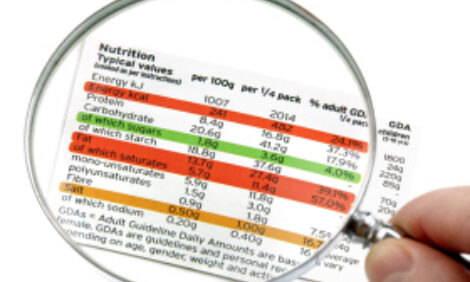



Govt Sets Permissible Limits for Antibiotic Use in Chickens
INDIA - The Indian government is trying to make sure that the chicken on citizens' plates is free of excessive antibiotics and veterinary drugs that may be harmful for human consumption.*
"We will direct poultry farms to adhere to the good animal husbandry practices and monitor the use of antibiotics and veterinary drugs in meat and chicken."
Livemint.com reports that the ministry of health has notified an amendment to the Food Safety & Standards (Contaminants, Toxins & Residues) Regulations, 2011, under which maximum permissible limits have been specified for the presence of antibiotics and other drugs in meat and meat products, including chicken.
"Maximum permissible limits of 37 antibiotics and 67 other veterinary drugs are prescribed for chicken," the health ministry said in a statement on Monday.
The ministry, through the Food Safety and Standards Authority of India (FSSAI), has also sought comments from all stakeholders, including individual citizens. The comments will be placed for consideration before the scientific panel of the FSSAI on residues of pesticides and antibiotics.
"We will direct poultry farms to adhere to the good animal husbandry practices and monitor the use of antibiotics and veterinary drugs in meat and chicken," said Pawan Kumar Agarwal, chief executive officer of FSSAI.
"Further, special food committees and food inspectors will also check the antibiotic levels in chicken used in food processing units. Though small shops will be a challenge, we are working in tandem with the animal husbandry department for effective implementation of new regulations," Mr Kumar said.
Perturbed by increasing anti-microbial resistance (AMR) in animals, which is indirectly being transmitted to people through meat and poultry products, the National Centre for Disease Control (NCDC) recently wrote to the department of animal husbandry, seeking to regulate the use of antibiotics on animals.
"Irrational use of antibiotics indirectly tells upon human health. While the residues of antibiotics may pass on to humans through food and milk, diseased animals resistant to drugs are even a bigger problem," said AC Dhariwal, director of NCDC.
The absence of stringent regulatory frameworks to limit the use of anti-microbial drugs in livestock and food animals, especially for non-therapeutic purposes such as growth stimulation, has been one of the drivers of overuse.
"Antibiotics are indiscriminately used in poultry. Animal growth promoters (drugs) are becoming a threat to the human health as their residues may pass on to humans through meat and poultry. The move by the health ministry to limit antibiotics in these foods was necessary," said Avinash Srivastava, a New Delhi-based veterinary expert.
"India is lagging behind in controlling antibiotics in animals. Many countries have made their poultry products antibiotic-free... Several big food chains in US have already taken the initiative to provide drug-free chicken. Neighbouring countries such as Sri Lanka, Nepal and Bangladesh are also going ahead in this direction," he said.
In a recent study published in peer-reviewed journal Environmental Health Perspective, researchers tested about 1,500 samples from 530 birds at 18 poultry farms across six districts of Punjab.
The study conducted by the Centre for Disease Dynamics, Economics & Policy found that nearly two-thirds of the poultry and egg farms were using antibiotics. And these same farms are more than three times as likely to report multi-drug-resistant bacteria as farms that do not use antibiotics.
According to a World Health Organization (WHO) report, the use of antibiotics in animal agriculture poses a significant risk to human health. Researchers have noted a major transmission pathway of drug-resistant bacteria from food animals to humans.









